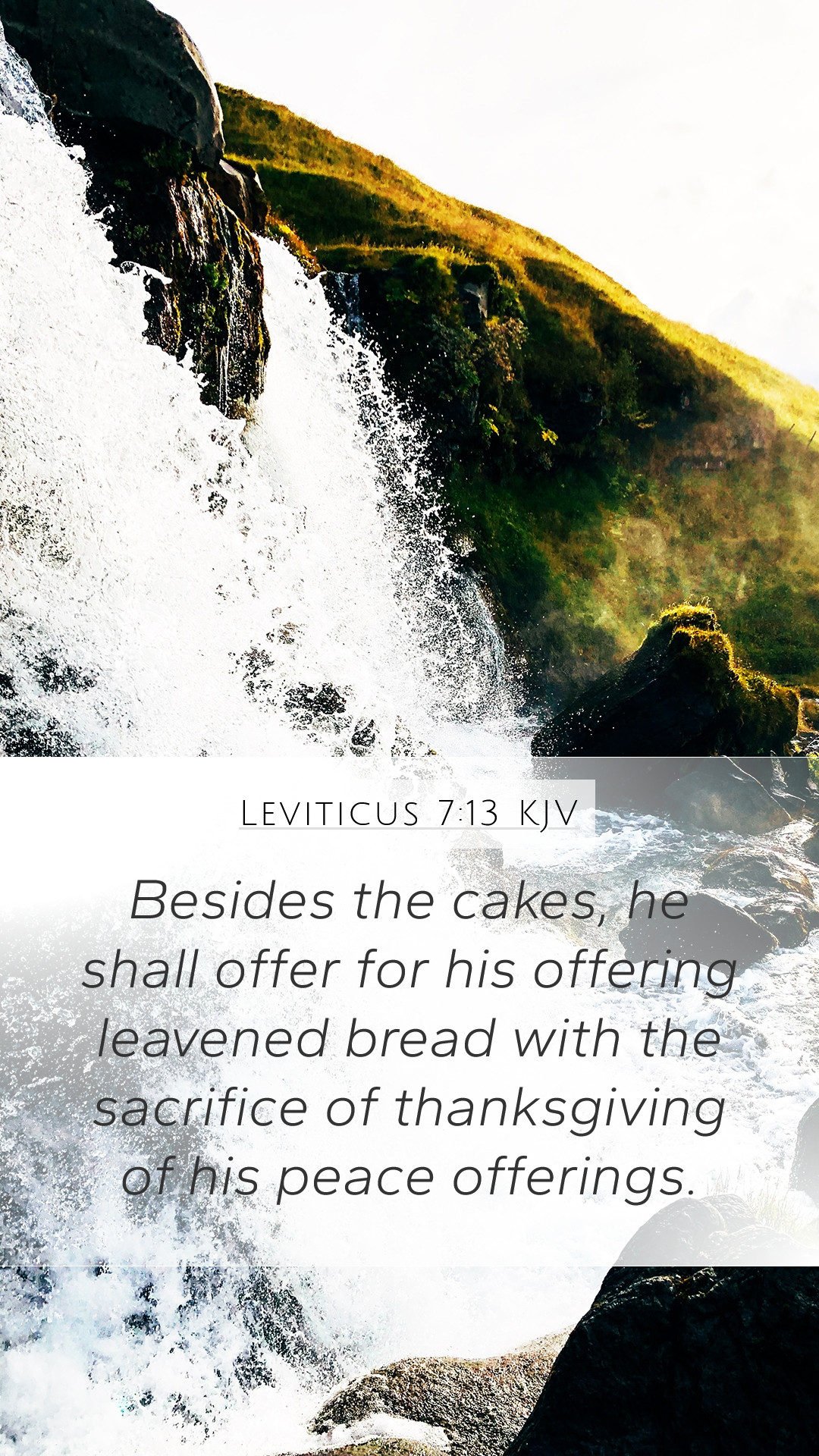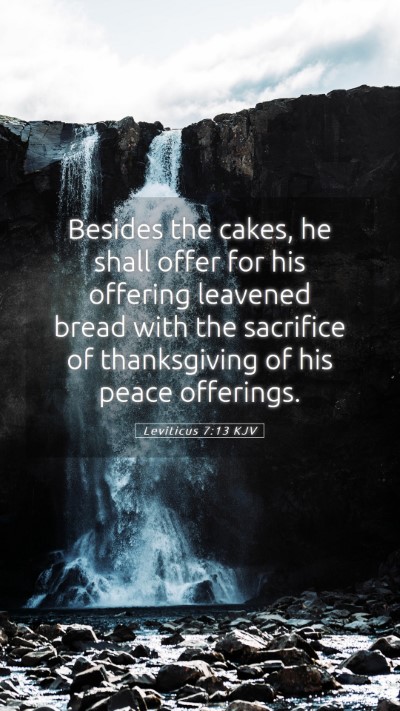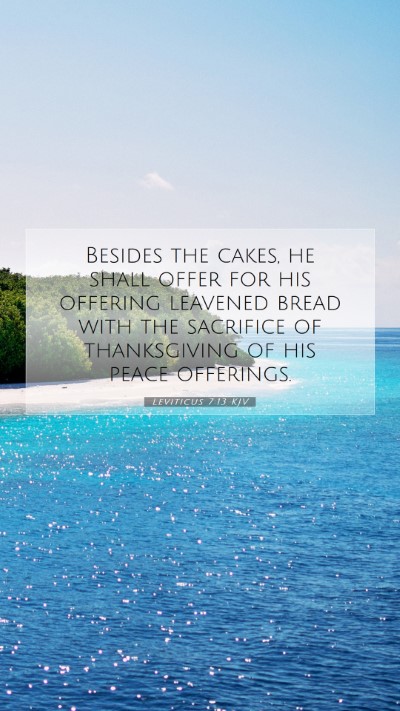Bible Verse Analysis: Leviticus 7:13
Verse: "Besides the cakes, he shall offer for his offering leavened bread with the sacrifice of thanksgiving of his peace offerings." (Leviticus 7:13)
Understanding Scripture
This verse from Leviticus focuses on the offerings made to God, specifically the inclusion of leavened bread with peace offerings. Leviticus provides detailed regulations concerning the sacrificial system established for the Israelites, which reflects both their covenant relationship with God and the importance of worship and thanksgiving.
Bible Verse Meanings
- Peace Offerings: Matthew Henry emphasizes that peace offerings symbolize fellowship with God. These offerings allowed the worshippers to share in a meal that signified peace and reconciliation.
- Leavened Bread: Albert Barnes explains that while leaven often represents sin, in this context of thanksgiving, it signifies joy and celebration. It shows that worship should be full of life and richness.
- Thanksgiving: Adam Clarke highlights that the act of offering thanksgiving represents an acknowledgment of God’s blessings, inviting the worshiper to express gratitude for God’s provision.
Bible Verse Interpretations
This verse illustrates how the Israelites were to approach God with a heart full of gratitude. The incorporation of leavened bread into peace offerings serves as a reminder of the fullness of the joy experienced in God’s presence. The offerings were both an act of worship and a communal feast, reinforcing community and familial bonds through shared blessings.
Scripture Analysis
Leviticus 7:13 is part of a larger narrative regarding the Israelites' worship practices. It underscores the significance of intentionality in worship. The offerings were not just rituals, but meant to reflect a sincere heart of gratitude towards God.
Biblical Exegesis
In examining this verse, we must consider both its historical and theological implications. Historically, the Israelites understood peace offerings as a form of sacrifice that established or maintained a harmonious relationship with God.
Key Insights from Public Domain Commentaries
- Matthew Henry: Highlights the communal aspect of the peace offering, where the worshiper eats part of the sacrifice, indicating fellowship with God.
- Albert Barnes: Notes that the presence of leavened bread signifies a joyful expression of gratitude, which was not overshadowed by the puritanical demands of sinless offerings.
- Adam Clarke: Indicates that the act of offering provides an opportunity for the worshiper to reflect on God’s provision and kindness, fostering a spirit of thankfulness.
Bible Study Insights
For those involved in Bible study groups or looking for Bible study resources, Leviticus 7:13 teaches the importance of approaching God with gratitude. This can be applicable in various Bible study lessons, centered on understanding the nature of offerings in worship.
Cross References
- Exodus 24:11 - Celebration of the covenant with God.
- Leviticus 3:1-5 - The peace offering explained in more detail.
- Psalm 50:14 - The call to thank God through offerings.
Applying Bible Verses to Daily Life
In today's context, the principles of this verse can guide one’s attitude towards thankfulness. Members of our community—including those engaged in online Bible study—can reflect on personal offerings of gratitude to God through actions, prayers, and communal gatherings.
Conclusion
In understanding Leviticus 7:13, we are reminded of the significant role that gratitude plays in the worship of God. Acknowledging God's blessings through our offerings has timeless value that can impact our spiritual lives today.


